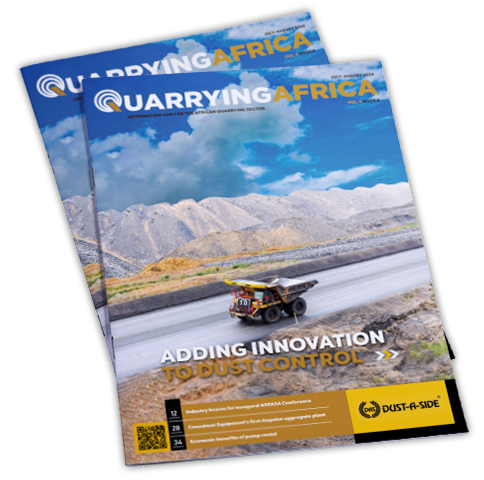When Vietze joined Wacker Neuson Sub-Saharan Africa in 2017, one of his immediate objectives was to reinject the much-needed growth into what was a business with dormant potential at the time. An analysis of the status quo revealed that one of the challenges was its limited footprint. To provide context, Wacker Neuson Sub-Saharan Africa had only three access points at the time – the Johannesburg headquarters and two branches located in Durban and Cape Town – to cater to a vast market.
The three access points, he says, were not even sufficient to cater to the South African market alone, which, according to Vietze, is almost three-and-a-half times the size of his home country, Germany. In 2018, Vietze and his team put together a strategy to expand access points across the whole region, with implementation taking centre stage in 2019. The plan entailed the absorption of three Wacker Neuson branches into the main headquarters in Johannesburg and, more importantly, the appointment of capable dealer partners across the region to give customers extended sales and service points.
“Traditionally, our customers were used to dealing with the original equipment manufacturer (OEM) directly and the dealer approach was therefore a big change for them,” explains Vietze. “However, they soon realised that dealers were just an extended arm providing the same service, professionalism and parts support, with an added benefit of shorter turnaround times due to their proximity to customer operations.”
The expansion strategy has yielded massive outcomes, with the extended dealer network and sub-branches increasing access points from three to 89 in sub-Saharan Africa. Consequently, the company has doubled its turnover in just four years, with 2022 constituting a particularly good year, recording a whopping 44% growth compared to 2021. The trajectory has continued into 2023, with a 20% growth rate expected this year.
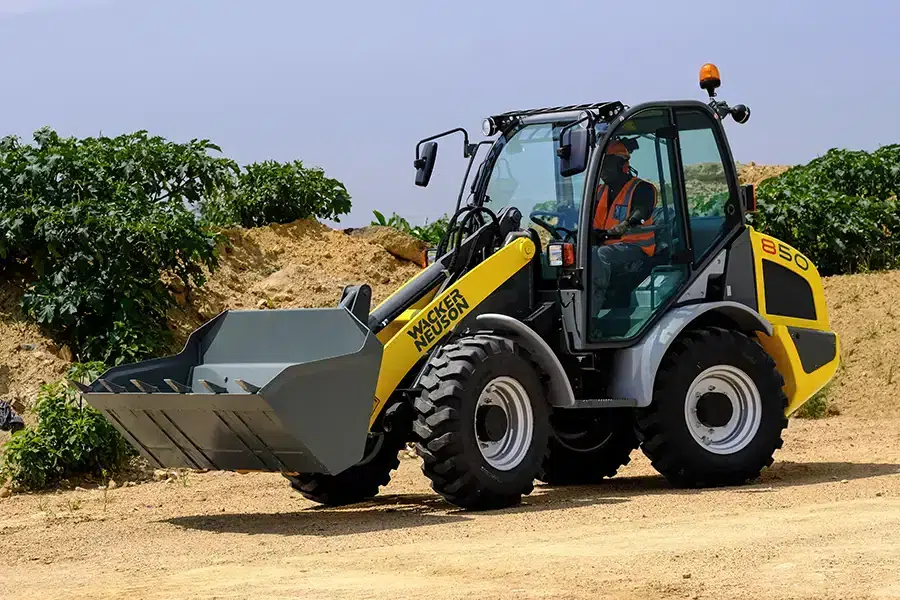
Diversification
The expansion strategy not only focused on access points, but also on new market segments. Traditionally, Wacker Neuson Sub-Saharan Africa was largely focused on the construction sector, where it is ranked amongst the top three brands in the light equipment segment such as rammers, pedestrian rollers, plate compactors, and breakers.
To unlock further growth, the company decided to diversify into other market segments such as agriculture, mining, and quarrying, leveraging a strong line-up of underutilised compact gear such as its all-steer wheel loaders, telehandlers and mini excavators. In the past, says Vietze, this range never reached its potential in the local market because the focus was more on the construction segment than any other potential markets.
“To make the most of opportunities in all segments, we separated our construction and agriculture dealer networks. To this end, we appointed three renowned agricultural dealers – AFGRI Equipment, Senwes Equipment and the TATA Group, who gave us an extensive footprint into agriculture. The partnership was mutually beneficial; the premium Wacker Neuson range also afforded them a solution to close the gap in their existing ranges, particularly in the compact telehandler, wheel loader and mini excavator markets,” says Vietze.
Given that these dealers have an extensive footprint among them and already command a premium customer base, Vietze tells Quarrying Africa that the growth in agriculture has been phenomenal in a short space of time. Within one-and-a-half years, Wacker Neuson is now among the top three brands in the compact telehandler market (with a reach up to 10 m), as well as the compact wheel loader and mini excavator markets (up to 8 t).
Apart from agriculture, Vietze says the mining sector also presents a major opportunity for the Wacker Neuson compact range, mainly for utility work such as cleaning and maintenance on mines and quarries. To this end, Wacker Neuson appointed Kathu-based Maucal Mining & Minerals as an official Kathu dealer in 2019, giving Wacker Neuson an extended presence in the mining region of the Northern Cape.
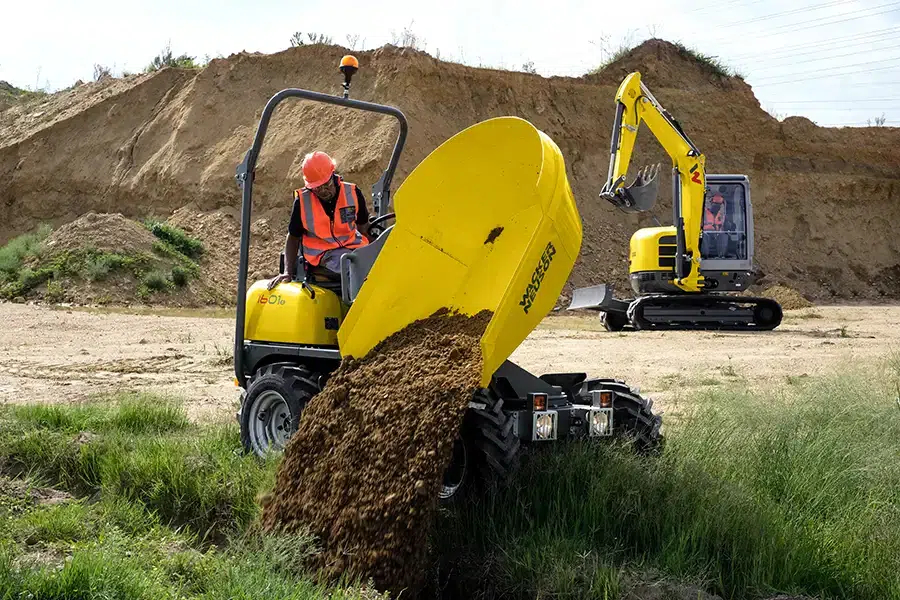
Focus on SMMEs
Given the high unemployment rate in South Africa, which stood at 31,9% during the third quarter of 2023 (Statistics SA), with youth unemployment at a staggering 43,4%, Vietze has seen an increasing appetite among young people to start small businesses in areas such as plumbing, landscaping and electrical works, amongst others.
Due to lack of capital, these informal, small, medium and micro enterprises (SMMEs) generally use manual labour in applications such as trenching, which, according to Vietze, is unproductive. This, he says, presents an opportunity for Wacker Neuson to offer its mini excavators and compact wheel loaders, for example, to this budding group of customers.
In partnership with one of the most prominent equipment rental chains in South and Sub-Saharan Africa, Wacker Neuson Sub-Saharan Africa has established a rent-to-rent facility, which is geared at SMMEs. The facility gives them access to what Wacker Neuson believes to be its niche products. These include mini excavators, mini loaders, dumpers and remote-controlled trench rollers – products that do not necessarily yet have large sales volumes. Rental, says Vietze, is a cost-effective option for this group of customers, given that it allows them access to premium machines as and when they need them.
“With this facility, we are playing our part in developing SMMEs which are crucial to the country’s economic growth. As their businesses grow and their utilisation starts to increase, they will consider buying their own machines. This places Wacker Neuson and our dealer partners in good stead to sell to them, given that they will already be accustomed to our product quality, performance and backup support,” explains Vietze.
African expansion
Apart from new market segments, the expansion programme has put Africa at the centre of its attention, with new partners appointed in recent years. With existing strong partners in Namibia, Zimbabwe, Botswana and Mozambique, efforts were focused on the rest of the other key markets.
“One of the interesting markets for us is Tanzania, where we have seen rapid growth, more in agriculture than construction. To make the most of this market, we have just appointed a capable dealer, TATA International. The onboarding of TATA International as a Wacker Neuson dealer in Tanzania earlier this year has secured a strong foothold for us on Africa’s East Coast, presenting advantages for both partners,” says Vietze.
To better look after its customers, TATA International opened an office in the capital, Dar es Salaam, in July 2023, which is supported by three branches located in Northern Tanzania – Mwanza, a port city on the shore of Lake Victoria, the city of Arusha, and Mafinga town. With further support from sister companies in Zambia and Malawi, TATA International is equipped to service customers across a wide region which extends into Rwanda.
TATA International will initially supply internal and external vibrators, rammers, single and reversible plate compactors, pedestrian and ride-on rollers, breakers, saws, generators, light towers, clearwater and trash pumps from Wacker Neuson. Eventually, the full range of Wacker Neuson equipment will be available from TATA International.
Another major market of focus is the Ivory Coast, where Wacker Neuson Sub-Saharan Africa has also onboarded a new dealer, Batisseurs Machines Et Materiaux (BMM). Elsewhere, the OEM is also currently onboarding a new dealer in Mauritius, a market Vietze ranks highly in terms of potential growth. Zambia, he says, is next on the agenda. After the dealer agreement in Tanzania, TATA International is highly interested in representing the brand in Zambia, a market where it already has a large footprint.
“Looking ahead, we have the Democratic Republic of Congo (DRC) on our radar. We have lined up the first interviews with potential partners for due diligence purposes. We expect to onboard the DRC partner by Q1, 2024,” says Vietze. “One of the most attractive, yet difficult markets, is Nigeria. We plan to visit and negotiate with a potential partner during Q1, 2024.”
The African expansion programme has been a success for Wacker Neuson. To provide context, when Vietze took over, 90% of the company’s revenue was attributed to South Africa, with the other 10% from cross border markets. Following the expansion strategy, the ratio is now 60% South Africa and 40% other African markets. This, says Vietze, is a favourable ratio because the business is not concentrated in one market. With the drive to secure representation in big markets such as the DRC and Nigeria, Vietze believes there might be a shift to a 50-50 ratio in the next two years.
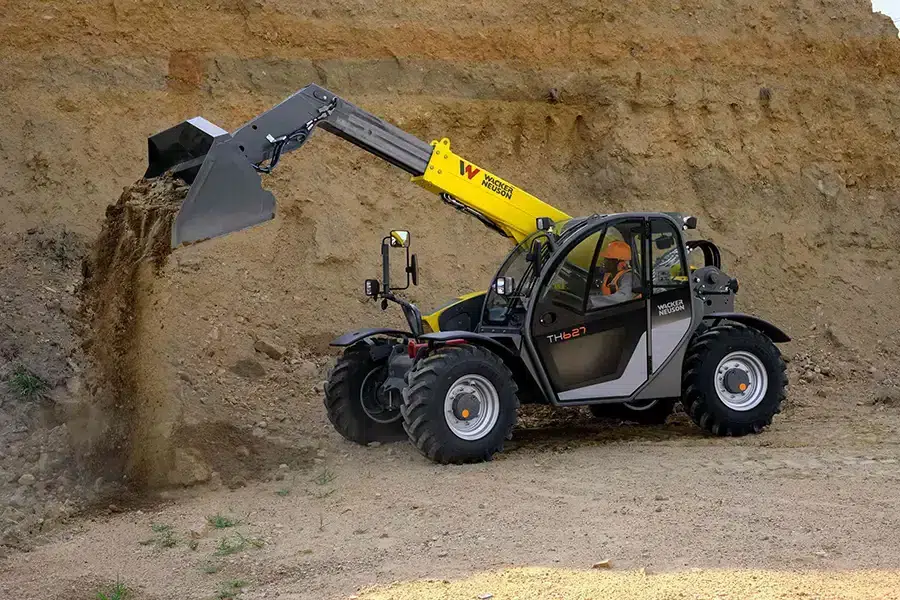
Trends
Commenting on some new trends in the market, Vietze says Wacker Neuson sees a greater need to start promoting zero-emission, battery-powered products in the African market. Despite the general sentiment that Africa is not yet ready for the technology, Vietze says Wacker Neuson wants to be among the pioneers of the technology in the local market.
The company already has a full range of battery-powered solutions available, including a rammer, plate compactor, a vibrator and also a 1,7-t mini excavator ideally suited for eco-estates. Wacker Neuson has also made its electric range available as part of the rent-to-rent concept.
Digital innovation is another key trend of focus for Wacker Neuson. As part of this drive, all its dealers have now adopted the Smart Glasses introduced locally in 2022. The mixed reality glasses support service technicians on site. When a customer needs help, the service technician, equipped with the smart glasses, can join a live expert and share his view of the machine. “With this solution, the machine is up and running again in a short time. The smart glasses thus save travel time, costs and resources,” concludes Vietze.
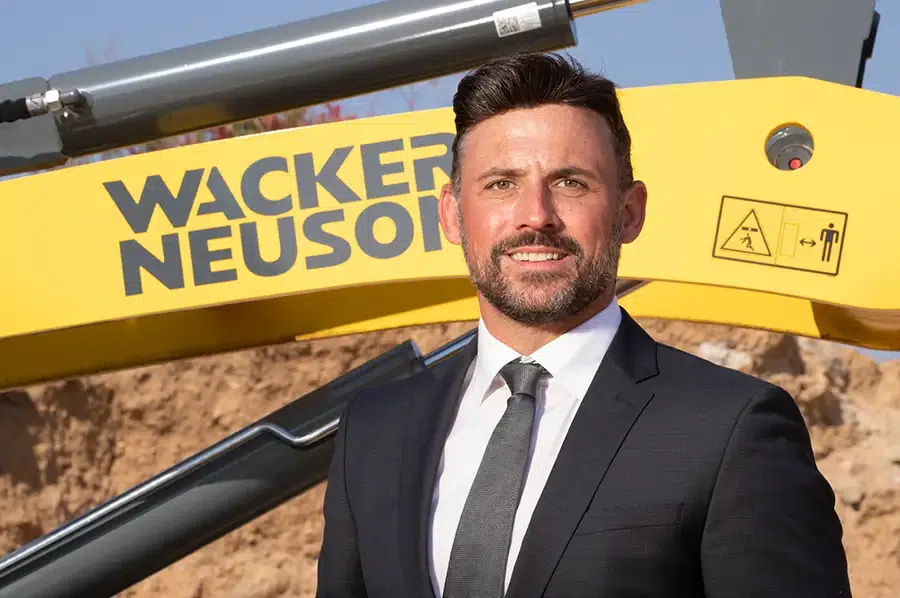
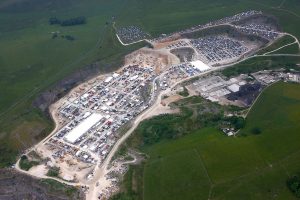
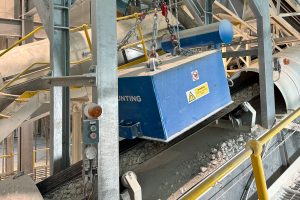


![Data from the World Risk Poll shows that one in five (21%) people in mining and quarrying occupations have experienced harm at work in the past two years. [Photo by Shane McLendon on Unsplash]](https://quarryingafrica.com/wp-content/uploads/2024/10/shane-mclendon-89hUOLtVfoI-unsplash-300x225.jpg)
